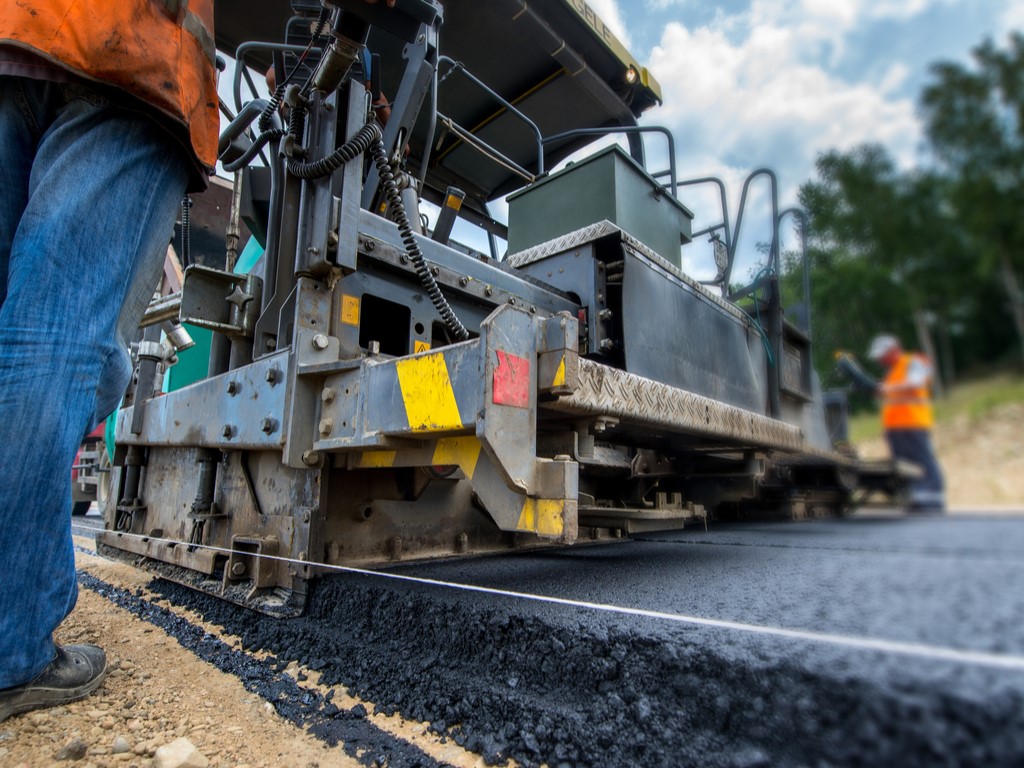
Introduction
Bitukim, a leading supplier of Polymer Modified Bitumen (PMB), delivers cutting-edge solutions for durable, high-performance infrastructure. Polymer Modified Bitumen is an advanced version of traditional bitumen, enhanced with polymers like Styrene-Butadiene-Styrene (SBS), Ethylene Vinyl Acetate (EVA), or recycled rubber to meet the rigorous demands of modern road construction. (Contact Us)
What is Polymer Modified Bitumen (PMB)?
Polymer Modified Bitumen (PMB) is a specialized material designed to improve the performance of asphalt in challenging conditions. By blending polymers with standard bitumen, suppliers of PMB like Bitukim create a product with superior flexibility, resilience, and resistance to deformation, aging, and temperature fluctuations. This makes PMB ideal for highways, airports, and urban roads where durability is critical.
Unlike traditional bitumen, which softens in high temperatures and becomes brittle in cold conditions, PMB maintains its integrity across a wide temperature range. This ensures long-lasting pavements that withstand heavy traffic and extreme weather.
Why Choose Bitukim as Your Supplier of PMB?
As a trusted PMB supplier, Bitukim addresses the limitations of conventional bitumen, which is prone to rutting in hot climates and cracking in cold ones. Our PMB enhances tensile strength and elasticity, offering superior resistance to:
- Rutting: Prevents pavement deformation under heavy traffic.
- Fatigue: Reduces wear from repeated stress.
- Thermal Cracking: Maintains stability in extreme temperatures.
- Stripping: Improves adhesion between aggregates for a cohesive asphalt mix.
These properties result in smoother, safer roads with reduced maintenance needs, making Bitukim’s PMB a top choice for infrastructure projects.
Applications of Polymer Modified Bitumen
Bitukim’s PMB is engineered for high-stress environments and diverse applications, including:
- Highways and Expressways: Extends pavement life under heavy traffic.
- Airport Runways: Withstands aircraft weight and fuel spills.
- Urban Roads and Intersections: Handles stress from frequent braking and acceleration.
- Bridge Decks: Provides flexibility to prevent cracking.
Whether for new construction or road rehabilitation, Bitukim’s PMB ensures long-term performance and reliability.
Environmental and Economic Benefits
Choosing Bitukim as your supplier of Polymer Modified Bitumen supports sustainability. Our PMB incorporates recycled materials, such as crumb rubber from used tires, reducing waste and environmental impact. By extending pavement life, PMB minimizes the need for frequent repairs, lowering raw material consumption, energy use, and greenhouse gas emissions.
Economically, while PMB has a higher upfront cost than traditional bitumen, its durability reduces lifecycle expenses. Fewer repairs and less frequent resurfacing save costs and minimize traffic disruptions, making it a cost-effective solution for municipalities and contractors.
Storage and Handling Guidelines
To ensure optimal performance, Bitukim recommends the following for PMB:
- Store at 160°C–180°C to maintain quality.
- Maintain stability for up to 3 days at 160°C with constant agitation to prevent phase separation.
- Avoid overheating above 190°C to prevent polymer degradation.
Our team provides detailed guidance to ensure proper handling and application.
Challenges and Considerations
While PMB offers significant advantages, proper mix design and handling are crucial. Bitukim’s experts ensure even polymer distribution and compatibility with base bitumen, optimizing performance. We also tailor PMB formulations to specific climatic and traffic conditions, ensuring the right solution for every project. Specialized equipment and trained operators may be required, and Bitukim offers support to streamline implementation.
Packaging and Delivery
Bitukim, a premier PMB supplier, offers flexible delivery options, including bulk tankers, drums, or containers based on client needs. Each delivery includes:
- Certificate of Analysis (COA)
- Batch number
- Date of manufacture
- Safety Data Sheet (SDS)
Why Bitukim?
As a leading supplier of Polymer Modified Bitumen, Bitukim combines innovation, quality, and customer support to deliver exceptional PMB solutions. Our products enhance road safety, reduce maintenance costs, and promote sustainability, making us the preferred choice for infrastructure projects worldwide.
Contact Bitukim for Your PMB Needs
Ready to elevate your road construction projects with high-quality PMB? Partner with Bitukim, your trusted supplier of PMB, for durable and sustainable solutions. Contact us today:
- Address: No. 2305, Burlington Tower, Business Bay, Dubai, UAE
- Phone: +(971) 4 566 4998
- Mobile: +971 (50) 940 9246
- Email: info@bitukim.com
Specification of Polymer Modified Bitumen
| Property | Test Method | Unit | Typical Range |
|---|---|---|---|
| Penetration @ 25°C | ASTM D5 / EN 1426 | dmm | 40 – 60 |
| Softening Point (R&B) | ASTM D36 / EN 1427 | °C | ≥ 60 |
| Elastic Recovery @ 25°C | EN 13398 | % | ≥ 60 |
| Ductility @ 25°C | ASTM D113 | cm | ≥ 100 |
| Viscosity @ 135°C | ASTM D4402 | cP | 1000 – 3000 |
| Fraass Breaking Point | EN 12593 | °C | ≤ -10 |
| Storage Stability @ 163°C | EN 13399 | °C | ≤ 5 difference |
| Flash Point | ASTM D92 | °C | ≥ 230 |
| Aging Resistance (RTFOT) | ASTM D2872 | – | Meets penetration & softening criteria |

